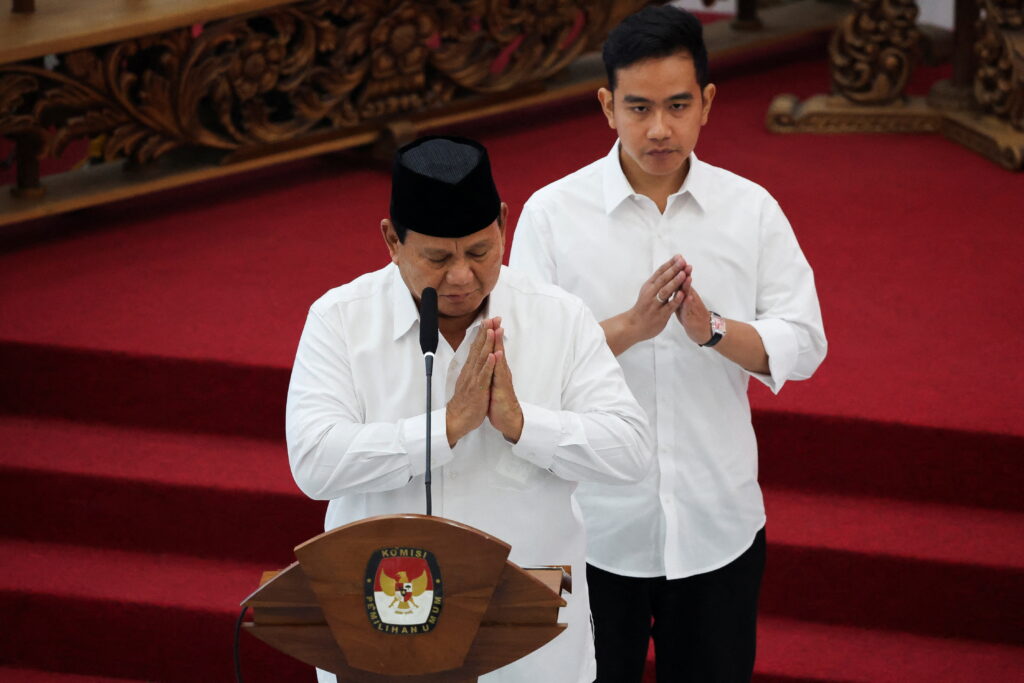The Organisation for Economic Cooperation and Development (OECD) promotes economic growth, trade and cooperation among its member countries. For Indonesia, OECD accession would be a significant step toward alignment with best-practice global governance and economic cooperation principles. The OECD’s rigorous standards and norms are critical in promoting transparency, accountability and ethical behaviour in member countries’ public policies.
As Indonesia progresses towards accession, it will face rigorous scrutiny and adjustments to comply with the OECD’s tough requirements. This would boost Indonesia’s global credibility and help drive the country’s economic progress and stability.
The OECD accession process will also require Indonesia to upgrade its accountability procedures and governance standards. This will be a difficult challenge for Indonesia given numerous shortcomings in state institutions that call levels of government accountability into question.
Indonesia’s governance deficit is laid bare in the Corruptions Perceptions Index (CPI). Indonesia’s 2023 CPI score was only 34 out of 100. This is significantly lower than the OECD’s 38 member nations’ average of 66. Indonesia has the same score as Turkey and is only 3 points higher than Mexico — the two lowest-scoring OECD members.
Worse, Indonesia’s E-Government Index score is only 0.7160 out of 1. This score is drastically below the OECD average of 0.872. Even poorer OECD members such as Colombia, Costa Rica and Lithuania have better e-government scores than Indonesia, with figures of 0.7261, 0.7659 and 0.8745 respectively.
Yet Indonesia’s issues are solvable. Many OECD candidates had similar problems due to imperfect governance. When Mexico filed for membership in 1994, the country was suffering significant issues due to corruption, particularly in politics and public administration. Former communist countries, including Hungary and Poland, also faced similar issues — their respective CPI scores when accession began were 4.86 and 5.57 out of 10.
Indonesia now faces the challenge of overcoming these governance barriers to accession, just as these other countries managed.
Indonesia’s president has a crucial role. Outgoing President Joko ‘Jokowi’ Widodo and president-elect Prabowo Subianto wield considerable political power, allowing them to influence every level of government. This is a double-edged sword. All government sectors can collaborate to address accountability issues if guided positively, yet the president can also do the opposite.
To overcome the dominance of presidential power, there must be better separation of powers. During Jokowi’s rule, the legislative and judicial branches were increasingly fused with the executive branch. This absence of checks and balances results in unsatisfactory governance standards.
For example, the government revised the Corruption Eradication Commission (KPK) Law, requiring that KPK personnel be government civil servants. This means the KPK’s staff are not as independent. Worse, regulations governing civil service administration are being created to provide greater legal clarity so that Indonesia’s military and police can fill a broader range of civil service roles. Instead of strengthening accountability, this has exacerbated conflicts of interest — undoubtedly enhancing fraud and reducing the quality of governance.
Next, Indonesia’s government must ensure that state institutions enforcing accountability and governance stay independent. These entities include the Audit Board of Indonesia, the KPK, the Indonesian Financial Transaction Reports and Analysis Centre and Bank Indonesia.
Indonesia must also improve its laws to fight corruption in all sectors. This means giving law enforcement the resources, training and independence to conduct inquiries and maintain legal ethics.
The government can use Hong Kong as an example, which has successfully suppressed corruption and ranked 14th in the 2023 CPI ranking. Since 1973, the Hong Kong government has delegated complete corruption-fighting authority to its Independent Commission Against Corruption. Through the commission, Hong Kong is establishing collaboration with other countries’ corruption authorities regarding prevalent cross-border bribery.
In addition to enhancing accountability, Indonesia’s government must accelerate digitisation to improve transparency. This is set to be achieved through the latest national digital platform, INA Digital, which will include nine key services including population administration, healthcare, education, financial transaction, immigration and social assistance. Jokowi has instructed all of Indonesia’s ministries to finish this digital integration by no later than May 2024.
Data portals like these can also help avoid government fraud. The Indonesian government has established public openness in purchasing via the National Public Procurement Agency. This allowed the public to bring 296 complaints about potential fraud in government procurement projects in 2023. If all government institutions follow through on this promise of transparency, the public will be better able to assess the accuracy and integrity of state administration. This allows the public to act as watchdogs for the government.
Regional governments must also participate in governance improvement efforts. Due to a shortage of skilled civil servants, accountability in Indonesia’s regions could be improved. Government-established regional autonomy is used to benefit bureaucrats rather than the areas themselves. Indonesia’s Ministry of Home Affairs must conduct strict surveillance to ensure compliance with the central government. The salaries for civil servants in small districts should also be examined to enable staff to afford necessities without turning to fraud.
Developing open systems of accountability, honesty and active participation are essential to fulfilling Indonesia’s desire to become an OECD member. This requires constructing foundations for better reregulation and cooperative government. When accomplished, accountability will rise and Indonesia’s governance will improve.
Muhammad Rafi Bakri is Data and Financial Analyst at the Audit Board of Indonesia and is involved in several research studies that assist in forming policies at the institution.
Rifky Pratama Wicaksono is Policy Technical Reviewer at the Audit Board of Indonesia.

